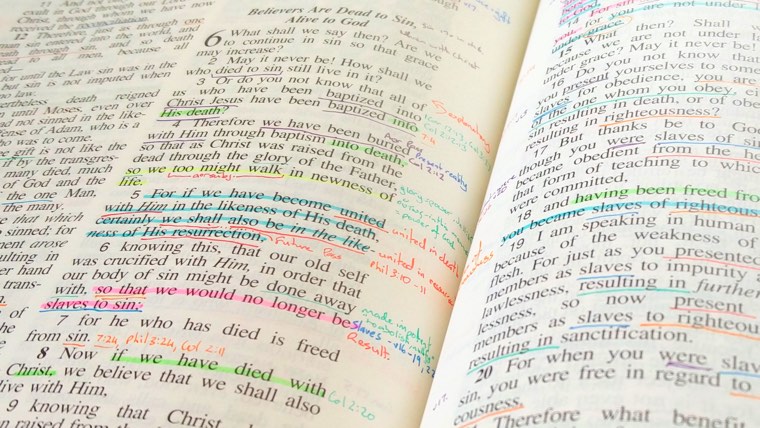Have you ever wondered if it’s acceptable to write in your Bible? Many individuals grapple with the idea of marking up their sacred text, fearing they may be disrespecting it. However, there are surprising benefits to writing in your Bible that can deepen your understanding and personal connection to the Word of God.
One significant advantage of writing in your Bible is the ability to actively engage with the text. By jotting down notes, reflections, and insights, you are not only learning from the Scriptures but also creating a personalized resource that speaks directly to your heart and mind. This interactive process of writing can lead to a more profound spiritual journey as you navigate through the teachings and messages within the pages of your Bible. Embracing this practice can truly enhance your study of the Word and allow for a more meaningful relationship with God.
Exploring the Debate: Should You Write in Your Bible?
Writing in your Bible can be a controversial topic among Christians. Some people believe that writing and highlighting in their Bibles is a helpful tool for studying and personalizing the Scriptures, while others feel that it shows disrespect to the Word of God.
Those who support the practice of writing in Bibles argue that it can enhance the study experience by allowing individuals to annotate important points, make personal reflections, and highlight meaningful passages. By underlining key verses or jotting down thoughts and prayers in the margins, readers can engage more deeply with the text and make connections that are personally significant to them.
Furthermore, writing in your Bible can serve as a form of journaling or a way to track your spiritual journey. It can help you remember important sermons, teachings, or insights you have gained from your reading. Some people find that writing notes in their Bibles helps them better understand and apply the messages of the Scriptures to their daily lives.
On the other hand, opponents of writing in Bibles argue that it can lead to a lack of reverence for the Word of God. They believe that Bibles should be treated with the utmost respect and that writing, underlining, or highlighting text is a form of defacement. Additionally, some people are concerned that personal notes or annotations could potentially alter the original text or distract from its true meaning.
Ultimately, whether or not it is okay to write in your Bible is a personal decision that each individual must make based on their own beliefs and convictions. Some may find value in the practice, while others may prefer to keep their Bibles pristine and untouched. Regardless of your stance on the issue, what matters most is the heart behind your actions and the respect and reverence you have for the Word of God.
Can you write notes in your Bible?
Yes, you can write notes in your Bible to help you remember important insights, reflections, or personal connections you have with the text. Adding notes can be a valuable tool for enhancing your understanding and application of Scripture. Many people find that taking notes in their Bibles helps them engage more deeply with the text and keep track of their thoughts over time.
Some Bibles even come with wide margins specifically for note-taking purposes. This extra space allows for annotations, drawings, cross-references, and other personal reflections that can enrich your study experience. Remember, the key is to treat your Bible with respect and reverence, even as you make it your own by adding notes and markings.
Ultimately, the practice of writing notes in your Bible can help you develop a deeper relationship with God’s Word and make it more personally meaningful to you.
Can I write in my study Bible?
Yes, you can write in your study Bible. Many people find it helpful to make notes, underline important passages, or jot down insights as they read and study the scriptures. Writing in your Bible can help you engage more deeply with the text and remember key points for future reference. Just be sure to use a pen or pencil that won’t bleed through the thin pages, and handle your Bible with care to preserve its longevity.
Why do people write in the Bible?
People write in the Bible to share stories, teachings, prophecies, and spiritual insights that are believed to be inspired by God. The Bible is considered a sacred text by Christians and Jews, serving as a guide for faith and practice. Writing in the Bible allows individuals to pass down important beliefs and values to future generations, ensuring that the messages contained within its pages continue to be passed on and understood by new readers. Additionally, writing in the Bible can provide personal reflection, interpretation, and study of the scriptures, deepening one’s understanding of the text and its relevance to their own life.
Is it okay to write down Bible verses?
Yes, it is absolutely okay to write down Bible verses. In fact, many people find it helpful to memorize and meditate on Bible verses to deepen their understanding of Scripture and strengthen their faith. Writing down Bible verses can also be a helpful spiritual practice for reflection and personal growth.

